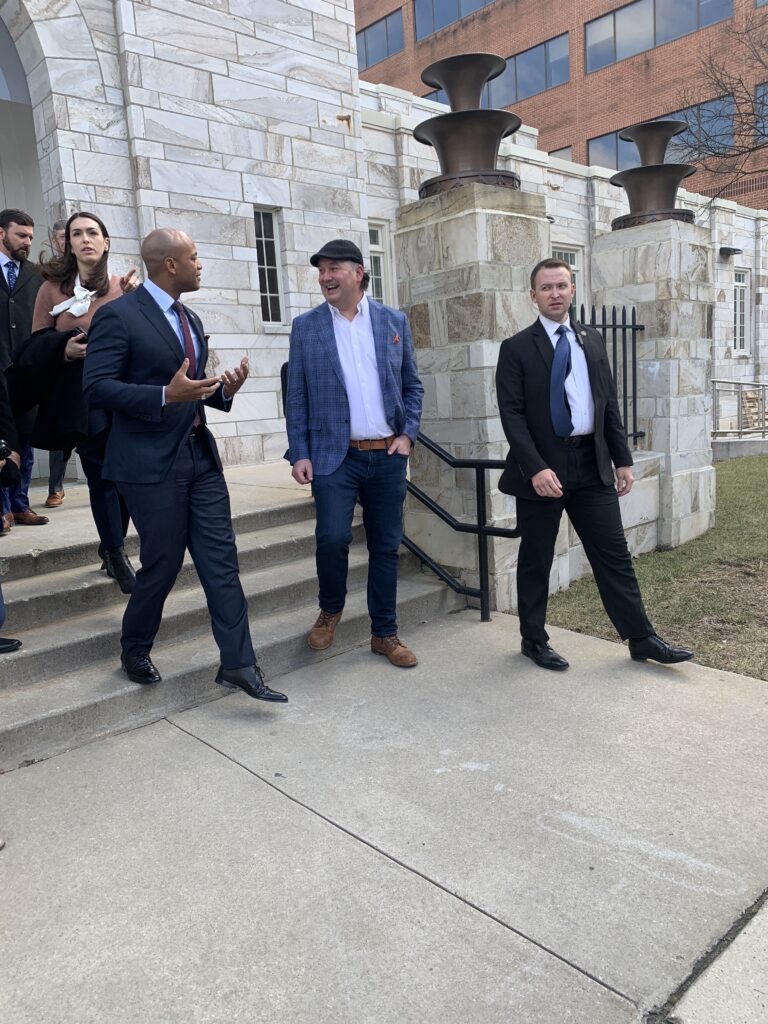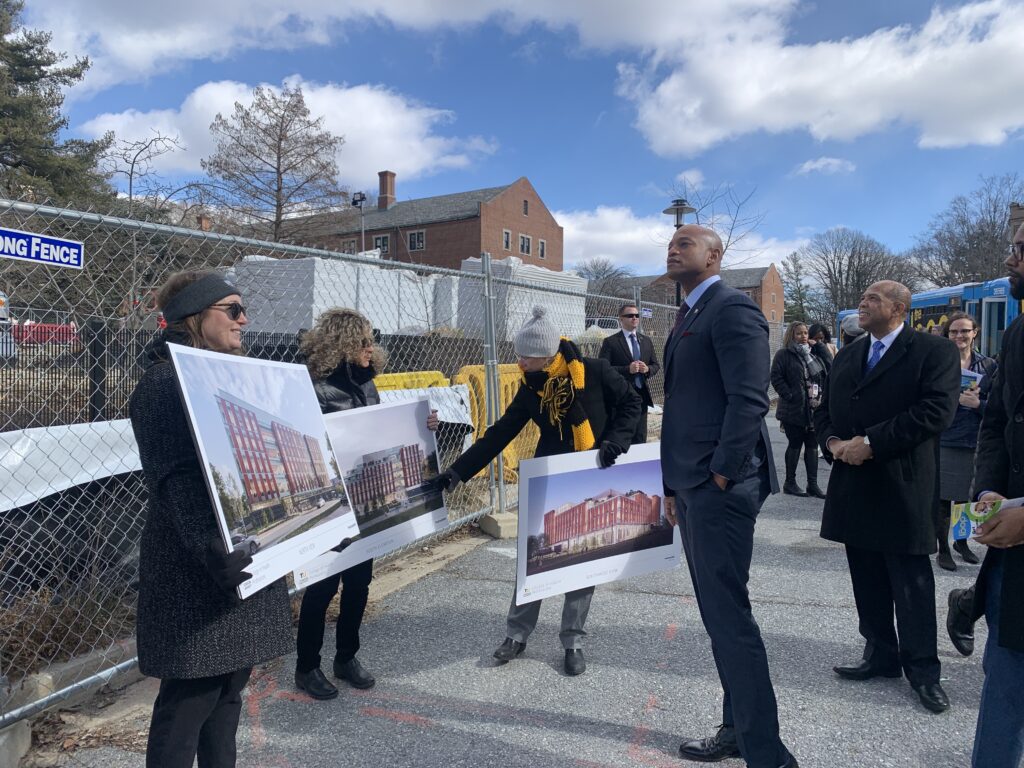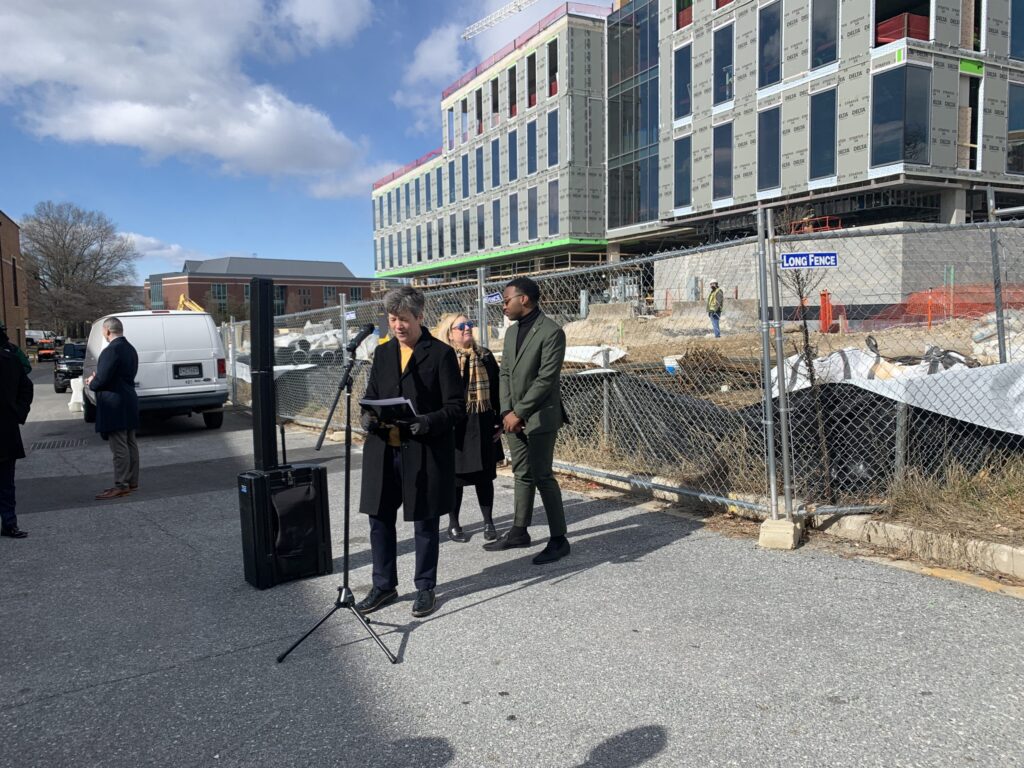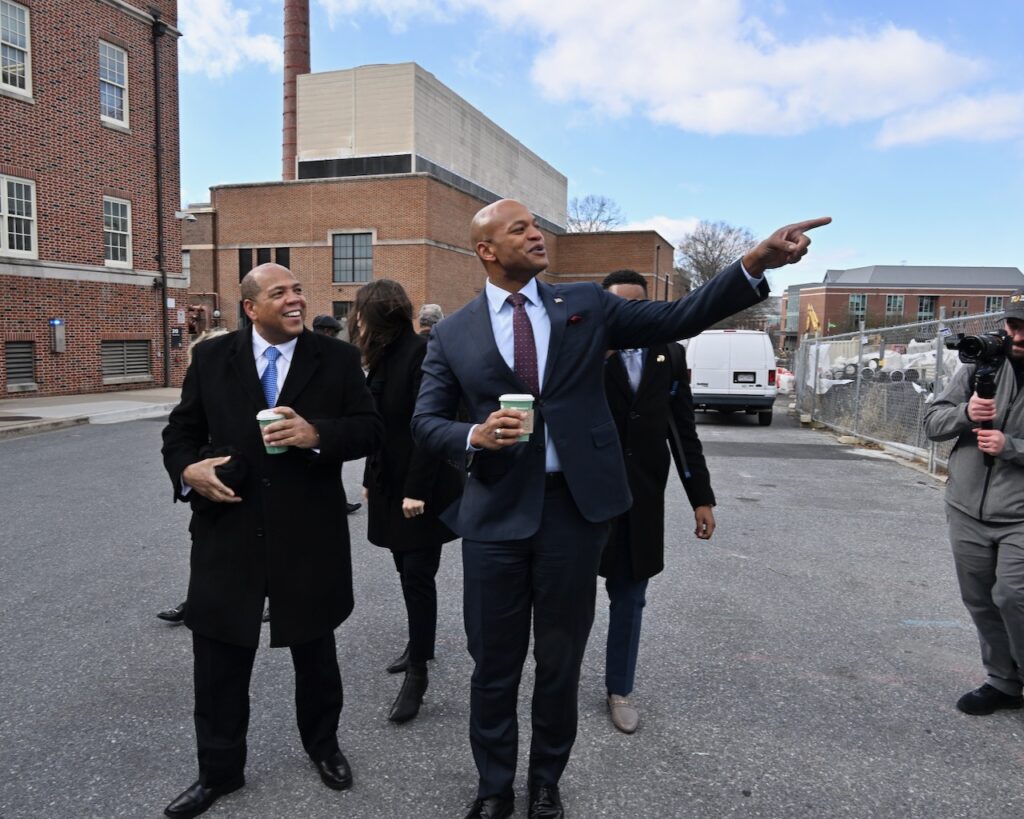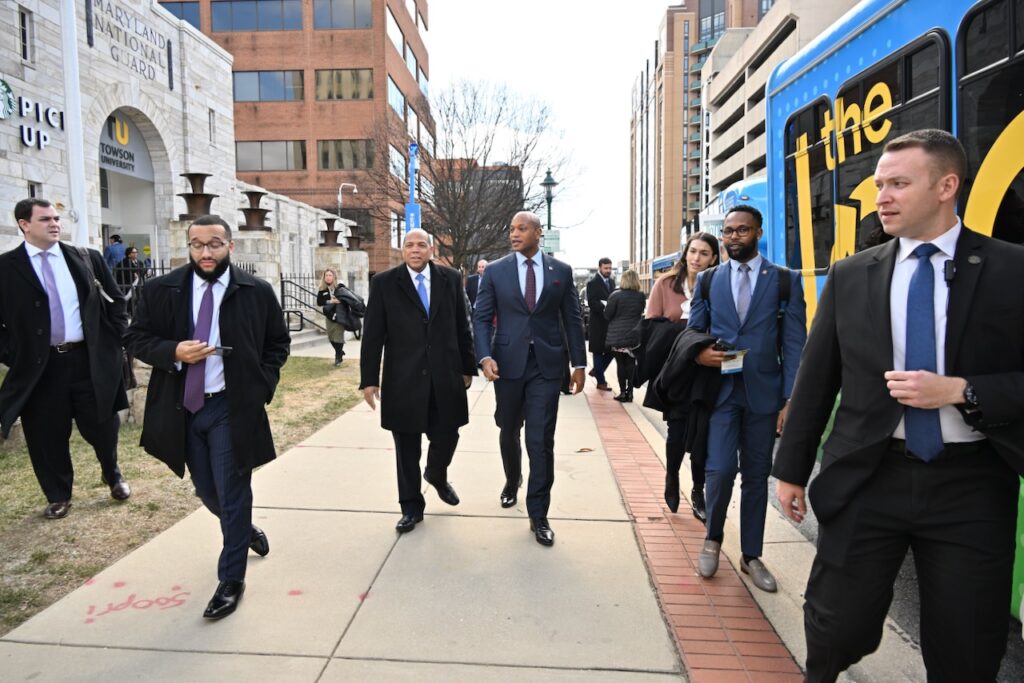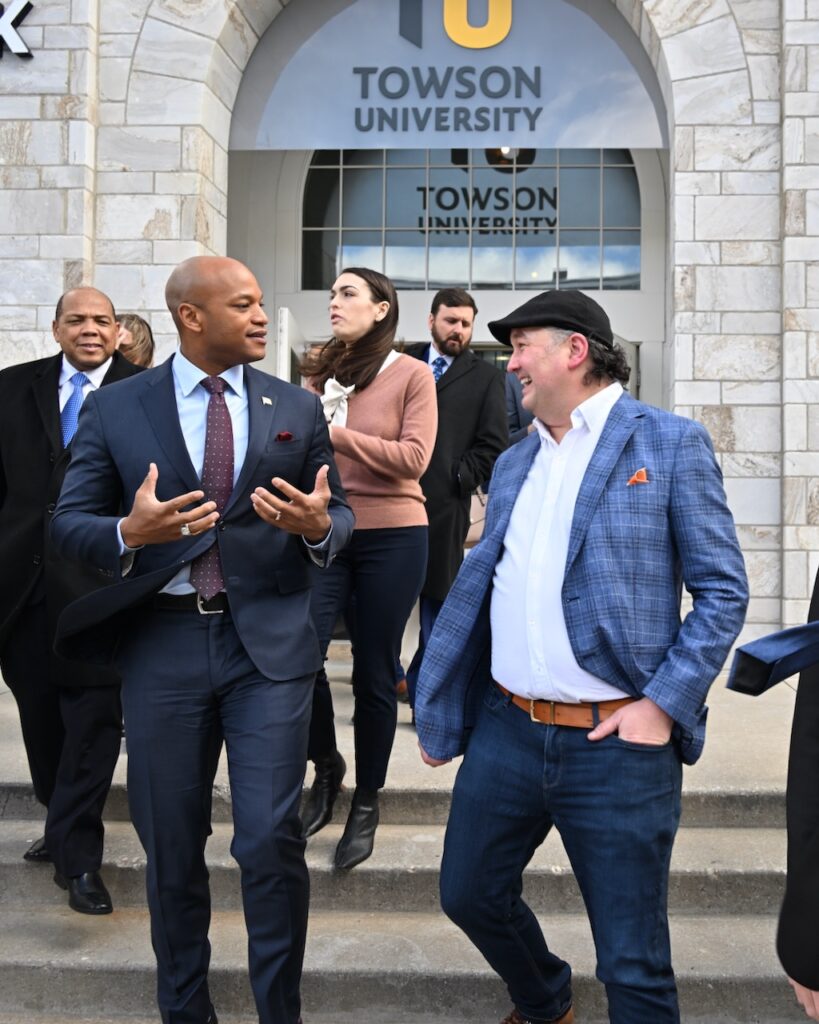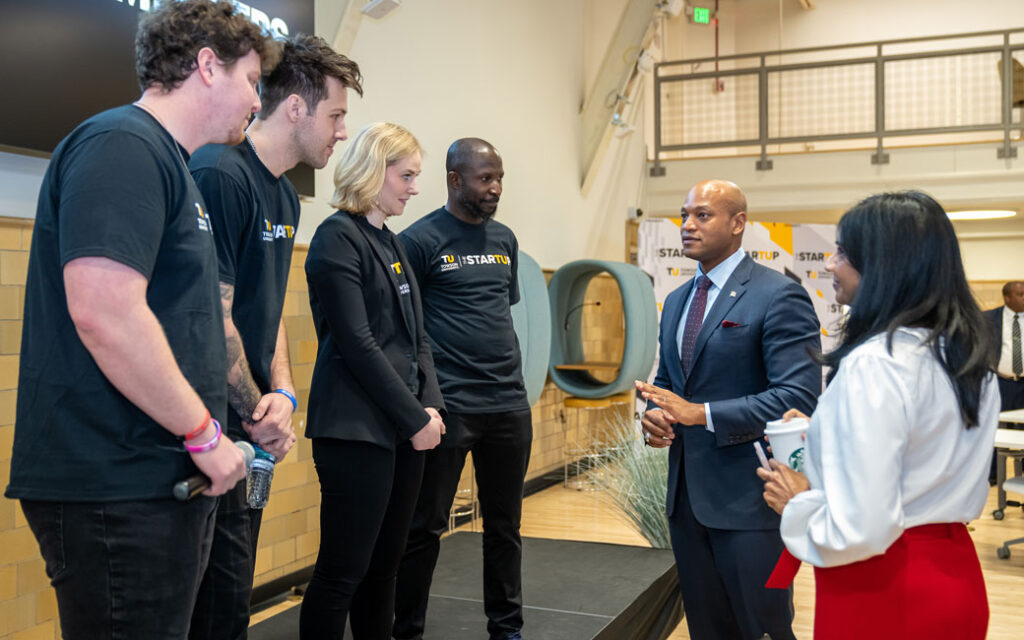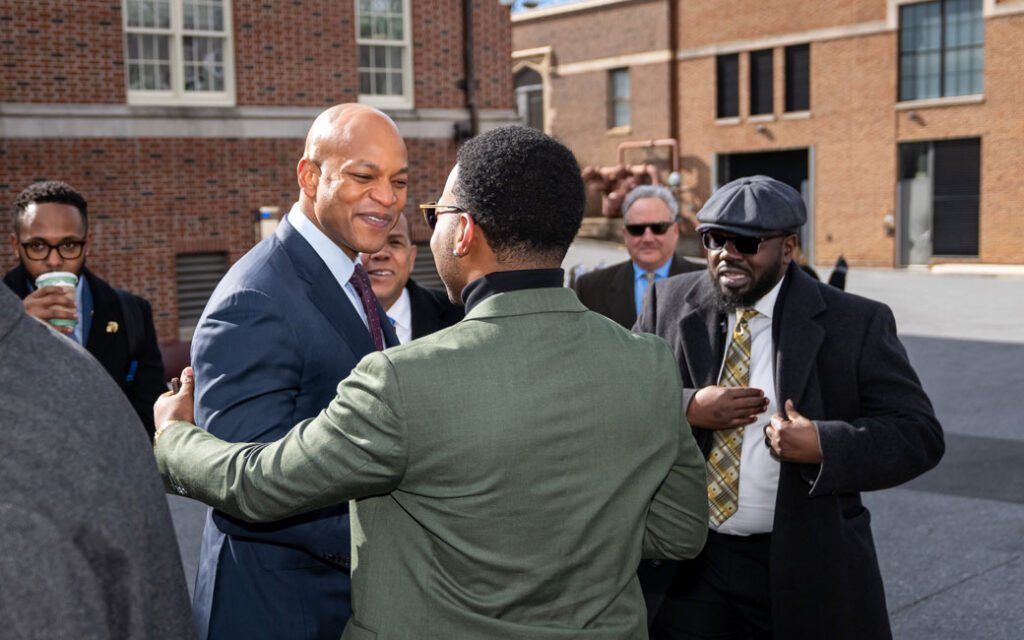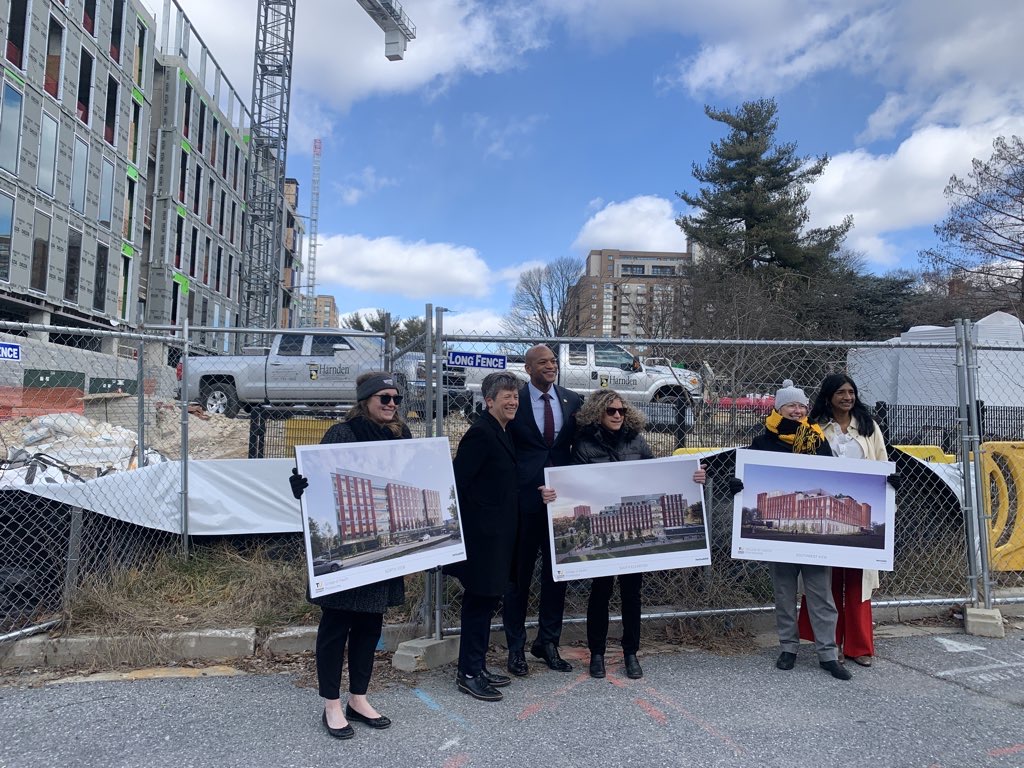
Gov. Moore holds cabinet meeting at Towson; visits future College of Health professions building
By: Caitlyn Freeman, Editor in Chief
Gov. Wes Moore held his second cabinet meeting at The Armory and saw the construction site for the new College of Health professions during a visit to Towson University on Friday.
Moore, who was sworn in as Maryland’s first Black governor two weeks ago, said he chose Towson as the location for the cabinet meeting, which was also attended by several local elected officials, to show how the administration wants to expand their presence beyond Annapolis.
“Being here, being at the StarTUp, being at Towson, this is a true home of some of the most innovative thinking that’s taking place all throughout the state of Maryland,” Moore, a Democrat, said in an interview. “So we thought it was only appropriate to be able to have our first external cabinet meeting here and bring the entire cabinet to a place that is generating so much energy on the state.”
The StarTUp, located at 307 Washington Ave., is Towson’s small business incubator and free public working space.
A main theme of Moore’s visit was job creation. Currently, Maryland has a 4% unemployment rate compared to the nationwide rate of 3.4%.
After a presentation on the Armory and some of the small businesses housed within it, Moore, alongside his cabinet, boarded the Baltimore County Loop and headed to the construction site for the university’s College of Health Professions building. The Loop is the county’s free bus service for the Towson area.
Interim-President Melanie Perreault presented the site to Moore and Lt. Gov. Aruna Miller and said Towson is helping to alleviate labor shortages in the state as its largest producer of healthcare workers, graduating about 620 annually.
The building is set to be completed in Summer 2024. Perreault said the college would include 19 classrooms, 10 specialty labs, 10 patient exam rooms, eight speech and audiology research labs, six specialty simulation labs and a 300-seat auditorium.
“[The building] is also physically representative of TU’s anchor strategy and its outward-facing campus practices with the building’s main entrance leading into downtown Towson,” Perreault said.
Moore’s visit to the construction site aligns with his hopes to produce 150,000 STEM graduates by 2027, according to campaign documents. To do so, he wants the state’s colleges and universities to produce 40,000 STEM graduates annually.
Additionally, he hopes to help Morgan State University become the first historically Black institution in the country with an R1 designation by the Carnegie Commission on Higher Education. R1-designated institutions have very high levels of research activity, graduate at least 20 doctoral degrees, and spend $5 million on research annually.
Towson is currently trying to reach R2 status, which means an institution has high research activity, an effort Moore said he supports but cautions the universities to do so without excluding marginalized groups.
“The thing I’ll also just remind all Maryland institutions is that we can never forget about the diverse student bodies that we have to be able to serve,” he said. “You know, we can’t move up in research status, but do that thinking that that also means the direct exclusion of a student body that is going to need our support and making sure those assets are available.”
Moore included a 12% funding increase for the University of Maryland System in his Fiscal Year 2024 budget. He also increased the funding for Historically Black Colleges and Universities by 19%.
He said the University System should utilize the additional funds to focus on minority student recruitment, and retention is a priority for the state’s schools. He said he wants to ensure the universities are addressing the equity issues within higher education access, like high tuition costs.
“I want for our universities to take that responsibility seriously to really dig into what are the challenges that students are facing,” Moore said.
While he increased higher education funding, he’s previously said he wanted to “end the myth” young people must attend college to be successful.
The state has already made some progress on this. In March 2022, Former Gov. Larry Hogan eliminated the requirement for state employees to have a four-year bachelor’s degree, opening up the accessibility of government jobs.
“We just want to make sure that [Marylanders are] having pathways to be able to choose what is going to be the right way for them to contribute to the society,” Moore said.

